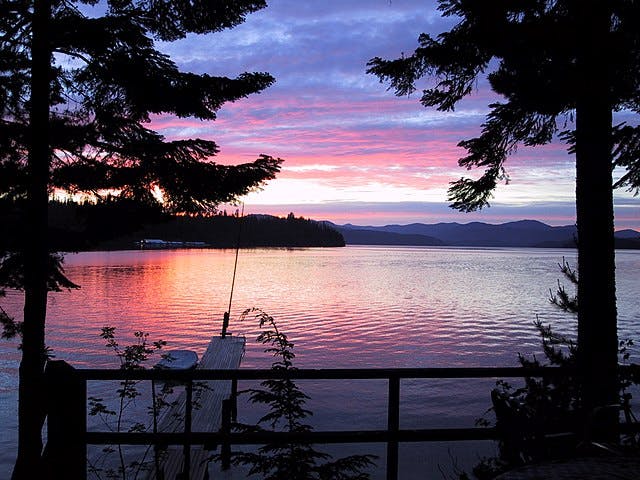EPA Is Holed at the Waterline
The Supreme Court decision in a wetlands regulation dispute vindicates property rights against intrusion by federal bureaucrats.

In the latest signal that the Regulatory State is in deep water, the Environmental Protection Agency received a unanimous rebuke by the Supreme Court in a wetlands regulation dispute. The decision in Sackett v. EPA vindicates property rights against intrusion by federal bureaucrats. Plus, too, it rejects the tendency of bureaucrats to misinterpret laws to seize more power for themselves. It will induce among DC regulators a sinking feeling.
The decision is a victory for the Sacketts, an Idaho couple who’ve been battling bureaucrats for almost 20 years to build a home on their land near Idaho’s Priest Lake. While work was under way, the EPA ordered them to stop “because their property contained protected wetlands,” violating the Clean Water Act. The EPA said their land was across a road from a “tributary” that “feeds into a non-navigable creek, which, in turn, feeds into Priest Lake.”
The acrobatics needed to put this property under the thumb of federal regulators stem from the EPA’s too-broad reading of the Clean Water Act, Justice Samuel Alito’s majority opinion, joined by four other justices, says. The EPA, for its part, contends that land like the Sacketts’ is subject to regulation under the Act if they contain “adjacent wetlands” with a “significant nexus,” as the agency put it, to “traditional navigable waters,” the decision notes.
Wouldn’t you know it, “almost all waters and wetlands” are “potentially susceptible to regulation” under this EPA view, Justice Alito points out. This interpretation of the law, Justice Alito adds, is so wide-ranging that “if viewed in isolation, it would extend to all water in the United States.” It would also place “a staggering array of landowners” at “risk of criminal prosecution or onerous civil penalties,” he notes.
So, Justice Alito asks, “What are landowners to do if they want to build on their property?” The EPA would have property owners ask the Army Corps of Engineers, he explains, “for a jurisdictional determination.” That’s “a written decision on whether a particular site contains covered waters.” For a nation whose founding was inspired by John Locke’s idea of an innate right to “life, liberty, and property,” this amounts to a galling intrusion by Uncle Sam.
Worse, Justice Alito adds, “the Corps maintains that it has no obligation to provide jurisdictional determinations,” and even if it deigns to do so, “a property owner may find it necessary to retain an expensive expert consultant” to persuade the regulating engineers of the agency. The icing on the cake is that “the EPA admits that the Corps finds jurisdiction approximately 75 percent of the time,” Justice Alito observes.
No wonder, Justice Alito concludes, “Many landowners faced with this unappetizing menu of options would simply choose to build nothing.” So the majority, going back to the text of the Act, is scaling back the EPA’s authority to intrude on landowners’ rights. They conclude the Act “extends to only those wetlands” that are “as a practical matter indistinguishable from waters of the United States” — meaning, “traditional interstate navigable waters.”
The unanimity of the decision in favor of the Sacketts, though, belies a split as the court’s three liberals, joined by Justice Brett Kavanaugh, agreed with the outcome but not with the reasoning. And Justice Clarence Thomas offered his own rationale, joined by Justice Neil Gorsuch, for opposing the EPA’s intrusions as a symptom of a larger misreading of the Constitution’s Commerce Clause. He would dial back federal regulation even further.
“States enjoy primary sovereignty over their waters,” Justice Thomas explains. The Commerce Clause, he explains, “vests Congress with a limited authority” over such waters serving “interstate commerce.” That power has since the New Deal metastasized and Uncle Sam now acts as “a local zoning board” for land across the country, Justice Thomas quips. Sackett offers a clarion call to reverse this overreach by the federal leviathan.

